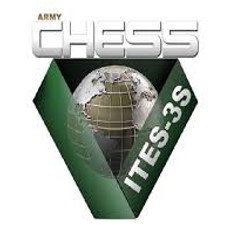AI-driven organizations don’t wait for analysts to “learn later.”
If you’re not improving your data skills now, you’re already behind.
When organizations lack a shared data modeling framework, definitions drift, reporting conflicts, integrations break, and analytics teams spend more time reconciling data than delivering insight.
Data Modeling & Analysis training equips teams to define business data accurately, model it consistently, and design structures that support reliable reporting, analytics, and scalable systems.
Establish a consistent, practical modeling approach across teams - so data definitions are aligned, models scale, and analytics outputs become trusted.
Leverage team training to improve data reliability across current and upcoming initiatives.
|
300,000+
Professionals trained
|
14
PDUs / CDUs
|
4.8★
Average participant rating
|
Fortune 500
Trusted by global brands
|
Curriculum at a glanceSection 1 — Introduction and FoundationEstablishes essential data-oriented concepts, clarifies business vocabulary, distinguishes transactional and analytical needs, and introduces E/R diagrams as the foundation for accurate logical data modeling
Section 2 — Framework for E/R DiagrammingExplains core E/R components - entity types, attributes, cardinality, dependencies, and foundational relationships - to build consistent, business-oriented data models. Section 3 — Diagramming Baseline Rules and PatternsCovers domain entities, associative and domain-based relationships, repeating groups, and transactional patterns to create accurate baseline E/R structures. Section 4 — Diagramming Complex Rules and PatternsAddresses enhanced modeling patterns including super/sub-types, recursive hierarchies and networks, role-based associations, and time-dependent data structures. Section 5 — Case StudyWork on a complex real-world case that provides an invaluable template that you and your team can leverage to develop professional level logical data models in your organization. Section 6 — BI and Analytic RequirementsDefine tactical and strategic questions, clarify reporting needs, identify facts and dimensions, and apply dimensional modeling techniques. Section 7 — Business Rule GeneralizationFocuses on normalizing data, generalizing entities, and analyzing metadata to identify abstractions that simplify and strengthen enterprise-level data models. Section 8 — Practical Guidance & Best PracticesProvides guidance on scaling models enterprise-wide, transforming conceptual to physical designs, leveraging reference models, and applying implementation best practices. |
Participants learn how to identify business entities, attributes and relationships; distinguish transactional and analytical requirements; and organize data in ways that scale across enterprise systems. Through hands-on practice with Entity Relationship (ER) diagrams, you and your team develop accurate, extensible logical data models that support application development, reporting, and BI/analytics. Explore enhanced data patterns - such as super/sub-types, recursive structures, and time-dependent data - as well as practical guidance for model transformation, normalization, and enterprise-level consistency. The result is stronger collaboration, smarter system design, and data structures that evolve with the business.
|
Data Modeling & Analysis eLearning is ideal when you need to improve how data is defined, structured, and communicated - so reporting, analytics, and system design stay reliable.
Professionals use data modeling eLearning to build durable capability, improve data clarity, and reduce downstream rework - without disrupting delivery schedules.
Learn practical modeling methods used by high-performing teams to define business data, reduce ambiguity, and support reliable reporting and analytics.
Results our learners reportTrusted by professionals and teams at leading organizations
|
|||
|
|
|












